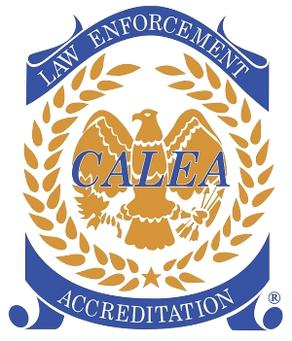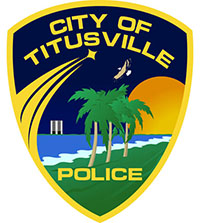
A police dog is a dog that is trained to assist police and other law enforcement officers, search and rescue, or the military. Their duties may include searching for drugs and explosives, locating missing people, finding crime scene evidence, protecting officers and other people, and attacking suspects who flee from officers. The breeds most commonly used by law enforcement are the German Shepherd, Belgian Malinois, Bloodhound, Dutch Shepherd, and Labrador Retriever. In recent years, the Belgian Malinois has become the leading choice for police and military work due to their intense drive, focus, agility, and smaller size, though German Shepherds remain the breed most associated with law enforcement.

The Federal Protective Service (FPS) is a Federal Law Enforcement agency of the United States Department of Homeland Security (DHS). It is also "the federal agency charged with protecting and delivering integrated law enforcement and security services to facilities owned or leased by the General Services Administration (GSA)"—over 9,000 buildings—and their occupants.

The Philippine National Police is the armed national police force in the Philippines. Its national headquarters is located at Camp Crame in Bagong Lipunan ng Crame, Quezon City. Currently, it has approximately 220,000 personnel to police a population in excess of 100 million.

Law Enforcement Exploring, commonly referred to as Police Explorers or Police Scouts, is an American vocational education program that allows youth to explore a career in law enforcement by working with local law enforcement agencies. Founded on July 12, 1973, it is one of the Exploring programs from Learning for Life, a non-Scouting affiliate of the Boy Scouts of America. The program is generally available to qualified young adults who graduated 8th grade and are ages 14 through 21.

A police academy, also known as a law enforcement training center, police college, or police university, is a training school for police cadets, designed to prepare them for the law enforcement agency they will be joining upon graduation, or to otherwise certify an individual as a law enforcement officer, typically a police officer.

The Metropolitan Transportation Authority Police Department (MTAPD) is the police agency of New York's Metropolitan Transportation Authority

The Commission on Accreditation for Law Enforcement Agencies, Inc. (CALEA) is a credentialing authority (accreditation), based in the United States, whose primary mission is to accredit public safety agencies, namely law enforcement agencies, training academies, communications centers, and campus public safety agencies.

The International Union of Police Associations (IUPA) is a North American police union, and is chartered as a national union that represents law enforcement and support personnel with the AFL–CIO.

The Colorado Rangers Law Enforcement Shared Reserve is a governmental police agency in the U.S. state of Colorado. Colorado Rangers are sworn, Colorado P.O.S.T. Certified police officers who serve as force multipliers for law enforcement agencies throughout the state of Colorado. The agency is designed to allow law enforcement agencies to reduce duplicated costs for training, equipment, and deployment of police officers by sharing sworn officers by police agencies throughout the state.

General Santander National Police Academy is the main educational center for the Colombian National Police. The academy functions as a university for the formation of its force.

The Virginia Tech Police Department (VTPD) is a nationally accredited police department with jurisdiction over Virginia Polytechnic Institute and State University. The departments original accreditation with CALEA was awarded on November 18, 1995 and the department has continued with re-accreditation. In November 2015, the department met "gold standard" and also won CALEA's "Accreditation with Excellence" award.

The Pentagon Police Division (PPD) is the uniformed division of the Pentagon Force Protection Agency (PFPA).

The Indonesian National Police is the national law enforcement and police force of the Republic of Indonesia. Founded on 1 July 1946, it was formerly a part of the country's military since 1962. The police were formally separated from the armed forces on 1 April 1999 in a process which was formally completed on 1 July 1999.

The Titusville Police Department (TPD) is the police force with the primary responsibility of public safety and the enforcement of state laws and county/municipal ordinances in the city of Titusville, Florida. In 2018, the department consisted of 137 full-time personnel and 17 part-time personnel. Full-time personnel includes sworn members, 911 dispatchers, code enforcement, and non-sworn civilians. The department also contained part-time personnel, like school crossing guards or record clerks.

The Florida Department of Law Enforcement (FDLE) is a state-wide investigative law enforcement agency within the state of Florida. The department formally coordinates eight boards, councils, and commissions. FDLE's duties, responsibilities, and procedures are mandated through Chapter 943, Florida Statutes, and Chapter 11, Florida Administrative Code. FDLE is headed by a commissioner who reports to the Florida Cabinet, which is composed of the governor, the attorney general, the chief financial officer, and the commissioner of agriculture. The commissioner is appointed to his position by the governor and cabinet and confirmed by the Florida Senate.
The United States Department of Justice defines school resource officers (SRO) as "sworn law enforcement officers responsible for safety and crime prevention in schools". They are employed by a local police or sheriff's agency and work closely with administrators in an effort to create a safer environment for both students and staff. The powers and responsibilities are similar to those of regular police officers, as they make arrests, respond to calls for service and document incidents.

The Master-at-Arms (MA) rating is responsible for law enforcement and force protection in the United States Navy—equivalent to the United States Army Military Police, the United States Marine Corps Military Police, the United States Air Force Security Forces, and the United States Coast Guard's Maritime Law Enforcement Specialist. It is one of the oldest ratings in the United States Navy, having been recognized since the inception of the U.S. Navy.
A police foundation is a charitable organization with the aim of improving policing.
William H. Adcox is the Chief Security Officer for the University of Texas MD Anderson Cancer Center and a pioneer of Threat Safety Science in healthcare. He is also the Chief of Police and Chief Security Officer at the University of Texas at Houston Police Department, which is a component of the University of Texas System. He has had a longstanding career as a police officer and Deputy Chief of Police in El Paso, Texas.















